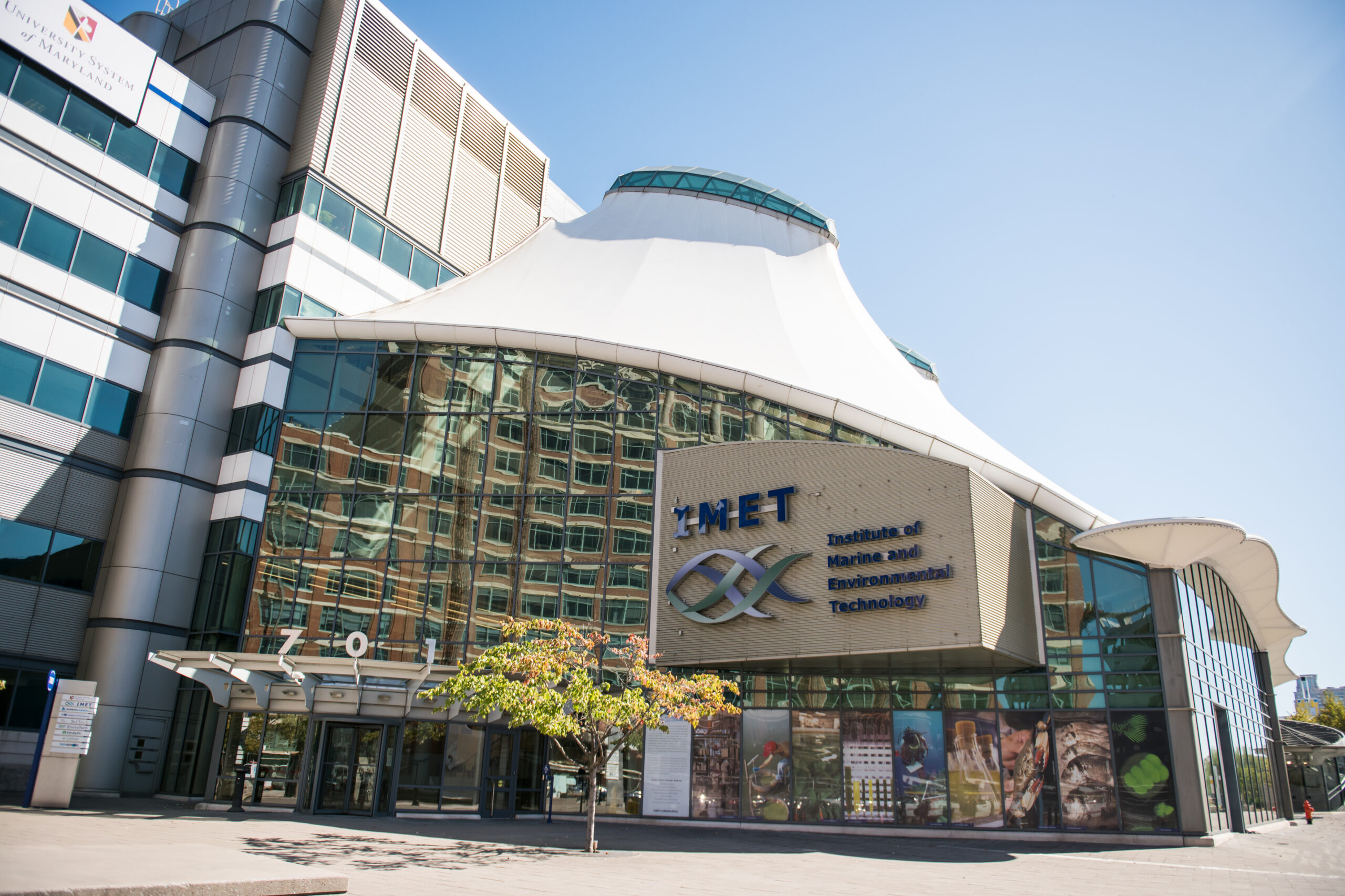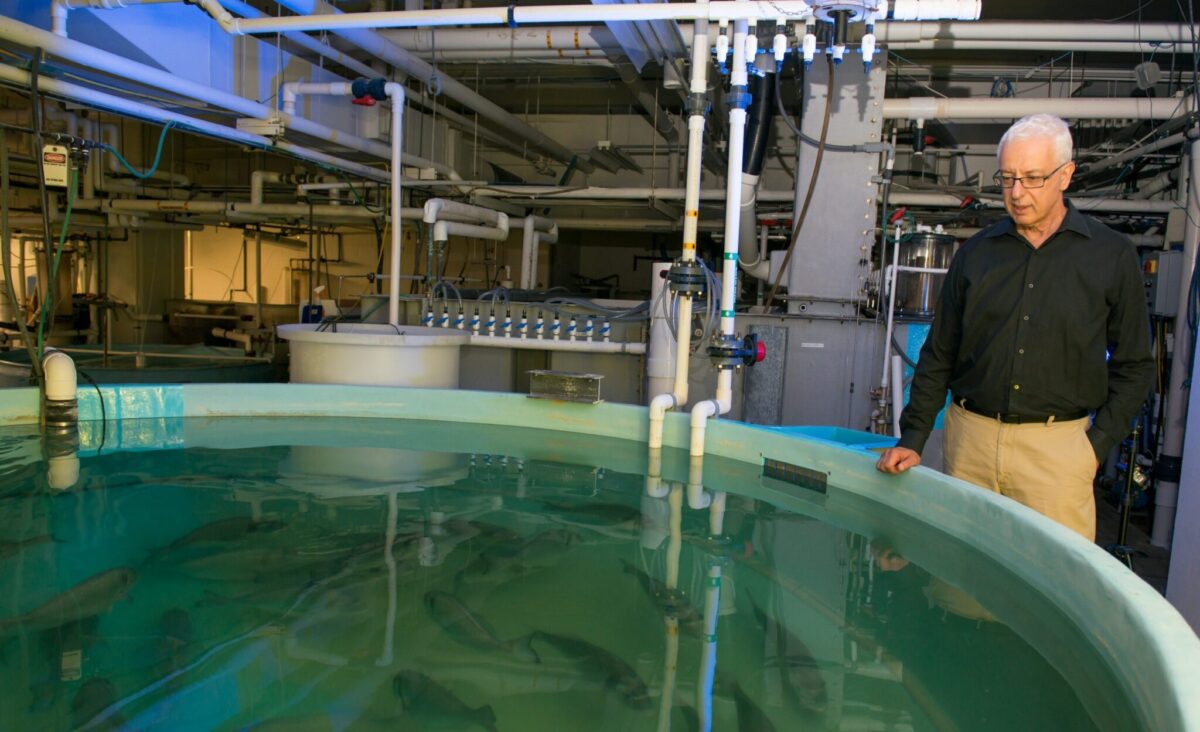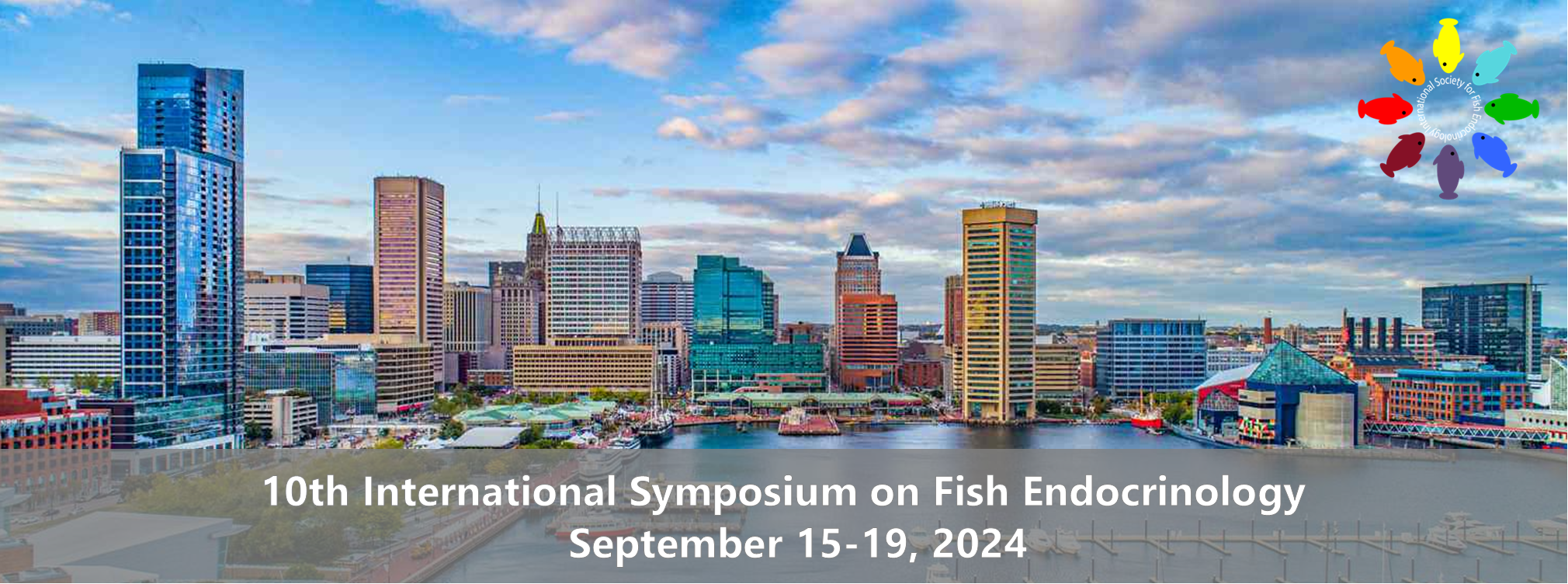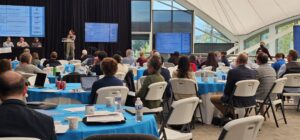Science & Tech
Yonathan Zohar honored for lifetime of contributions to fish endocrinology research and advances in aquaculture
Published: Nov 25, 2024
By: Sarah Hansen, M.S. ’15
 The Institute of Marine and Environmental Technology houses researchers from three universities, including those affiliated with UMBC’s Department of Marine Biotechnology. (Marlayna Demond ’11/UMBC)
The Institute of Marine and Environmental Technology houses researchers from three universities, including those affiliated with UMBC’s Department of Marine Biotechnology. (Marlayna Demond ’11/UMBC)
Yonathan Zohar, professor of marine biotechnology, has received the Lifetime Achievement Award from the International Society for Fish Endocrinology. Zohar’s work at the Institute of Marine and Environmental Technology in Baltimore’s Inner Harbor has produced fundamental discoveries in fish reproductive biology and applied the findings to the aquaculture industry, resulting in major advances. In 2020, the Binational Agricultural Research Development (BARD) Fund, a partnership program between the U.S. and Israel, also recognized Zohar for the outsize economic impact of his research.
In addition to Zohar’s core work in fish reproductive physiology, he has led a decades-long effort to develop land-based aquaculture methods that could bring fresh seafood to inland areas of the United States. Land-based fish production operations avoid pitfalls of open-water aquaculture such as disease, polluted water, and escapes. Land-based aquaculture could also limit the need for long-distance seafood transportation.
Maryland Farm and Harvest on Maryland Public Television (MPT) recently featured Zohar and his colleagues’ work. The aquaculture industry is the world’s fastest growing sector of agriculture, Zohar told MPT. American demand for seafood is rising, and currently, most of it is imported. With a $10 million grant from the USDA, Zohar has been working with team of scientists and government and industry stakeholders from the U.S. and abroad to help move land-based aquaculture toward commercial viability.
“We here at IMET, at the Aquaculture Research Center [ARC], are trying to address all these challenges, bottlenecks, hurdles to this industry so it can become economically feasible as well as—obviously as much as possible—environmentally responsible,” Zohar told MPT.

Yonathan Zohar stands next to a tank full of fish in the Aquaculture Research Center. (Marlayna Demond ’11/UMBC)
Addressing aquaculture’s hurdles
One of those hurdles is figuring out how to bring salmon to market size year round. Typically, salmon only reproduce once per year, Zohar explained. “We are using environmental manipulation to phase shift—to change the time of the spawning of the fish—so the farmer can get good quality eggs all year round,” he said. The team at the ARC has had success spawning salmon six months after their typical spawning time, Zohar told MPT, as a tray of red-orange salmon eggs spawned at IMET showed on the screen. And “if you can do it six months, you can do it four months, three months, all year round,” he said.
Another challenge to land-based systems is the accumulation of sludge—otherwise known as fish poop—in the tanks. Kevin Sowers, professor of marine biotechnology and a microbiology expert, explained that as the water in the fish tanks passes through a filter to be reused, bacterial colonies living on the surface of what look like pieces of wheel-shaped pasta break down the sludge. One of the products is methane gas.
“The goal here is to get rid of that waste, reduce it, and turn it into a product that can be used,” Sowers said. “And the product we produce, the biogas, will actually help power about 10 percent of the energy costs here in the facility.”
Still swimming along
All of these advances represent years or decades of effort by Zohar, Sowers, and additional colleagues to first understand the fundamentals of fish biology and reproduction, and then to find ways of tweaking it that serve the aquaculture industry and address the rising consumer demand for fish.
Zohar may have been doing this for a while, but with the industry on what feels like the cusp of a breakthrough, his continued enthusiasm for his work was obvious on Maryland Farm and Harvest.
“For someone who has been working on aquaculture for over 40 years, well, I have a lot of energy still to make sure that we make this happen,” Zohar told MPT—“that we stop overfishing our oceans and we satisfy the increasing demand of seafood in the United States and in the world.”
Tags: CNMS, MarineBiotech, Research
IMET to Host the 10th International Symposium on Fish Endocrinology (Sept 15-19th, 2024)

PLEASE CLICK HERE IF YOU WANT TO REGISTER
On behalf of the International Society for Fish Endocrinology, it is our pleasure to invite you to participate in the 10th International Symposium on Fish Endocrinology. This platform will provide a unique and timely opportunity to accelerate understanding and the application of technologies by bringing together researchers and professionals. This will facilitate the exchange of knowledge, ideas, and collaboration among scientists worldwide. In addition, the symposium will encourage and foster career development of junior members.
The specific aims for the 10th ISFE include the following:
- Present the state of the art and progress in basic knowledge of fish endocrinology.
- Introduce new fields of research such as functional genomic, Translational endocrinology and integrative action and cross-talk between hormone systems.
- Facilitate multidisciplinary collaborations.
- Educate industrial scientists about advances made in the science of fish endocrinology.
- Introduce biotechnical and translational challenges and initiate discussions, solutions, and collaborations.
Sincerely,
10th ISFE Local Organizing Committee
UMBC SAS^2 Conference in the Spotlight

More than 110 academic researchers, industry pros, government officials and educators met at the Institute of Marine and Environmental Technology (IMET) for the second annual Sustainable Aquaculture Systems Supporting Atlantic Salmon (SAS2) conference in October. The conference’s nine panel discussions (with more than 50 panelists), local field trips and tours, and social events gave stakeholders the opportunity to share progress and address remaining challenges to move the aquaculture industry forward.
Sustainable Aquaculture: Solving the off-flavor problem
Atlantic Salmon Arrive in Baltimore for Aquaculture Research at the Institute of Marine and Environmental Technology (IMET)
Marine biologist and fish reproductive endocrinologist Yonathan Zohar, PhD gives a tour of his aquaculture laboratory at the University of Maryland Institute of Marine and Environmental Technology. Dr. Zohar and his team have developed a system which incorporates the whole life cycle of threatened marine fish. The lab creates its own salt water, which contains no pathogens, heavy metals, PCBs, or other impurities. The system also does not release waste into the environment. Organic filters purify the water, while remaining solid waste is converted to biofuel. Algae are also grown as a source of fish feed and biodiesel.
Breakthrough Sustainable Aquaculture System Featured